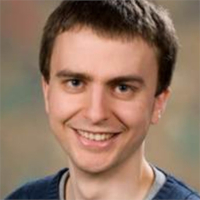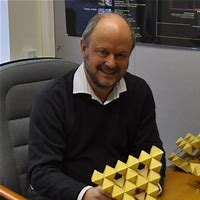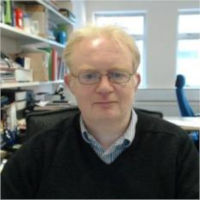Prof Bill David FRS
WP 1.1 WP 1.2
Bill David has made significant contributions to the development of neutron and X-ray powder diffraction. Highlights include the comprehensive crystal-structure analysis of C60, and the accelerated determination of molecular crystal structures through his computer program, DASH. His theoretical work is based around the application of Bayesian probability theory in areas ranging from structural incompleteness to parametric data analysis.
Bill’s materials focus is in energy storage, beginning with his research on lithium battery cathodes. More recently, he has worked on lightweight hydrogen-storage materials such as reversible imide-amide systems. Following his discovery of a new family of ammonia-decomposition catalysts, his main energy research interests are in materials that facilitate the safe and effective utilisation of ammonia as an energy vector.
Bill’s awards include the IOP CV Boys Prize (1990), the inaugural British Crystallography Association Prize (2002), the European Society for Applied Physical Chemistry Prize (2006), one of three Bragg Lecture Awards (2013) marking the centenary of the discovery of X-ray diffraction, and the 2015 RSC John B Goodenough Award recognising exceptional and sustained contributions to materials chemistry
https://royalsociety.org/people/william-david-12857/
Prof Martin Owen Jones
WP 1.1
Professor Martin Owen Jones is a Lecturer at Oxford University, Energy Materials Coordinator for the ISIS neutron spallation facility at the Rutherford Appleton Laboratory and honorary professor of chemistry at the University of St Andrews. He graduated from Nottingham University where he also did his PhD studies. After that, he was a postdoctoral fellow at the University of Birmingham, ERASMUS Research Fellow at the CRISMAT research facility, Caen (France) and Director of Research for Professor Peter Edwards at the Inorganic Chemistry Laboratory, Oxford. He took up his present positions in November 2011 and teaches Inorganic Chemistry at Lincoln.
The study of energy materials, ranging from superconductors, through transparent conducting oxides and hydrogen storage materials to catalysts and in particular research into low-carbon energy storage systems. His recent work has focused on the development of systems to detect, store and utilise ammonia as a chemical energy storage medium. Neutron scattering techniques are a crucial element for the study of energy materials as their highly penetrating nature allows complex sample environment to be used during characterisation studies, facilitating the development of operando characterisation – the study of materials at the conditions of operation.
https://www.lincoln.ox.ac.uk/Fellows/MartinOwenJones
https://www.isis.stfc.ac.uk/Pages/home.aspx




